Five Benefits of Smart Thermostats
Posted on by WestAIR Heating & Cooling
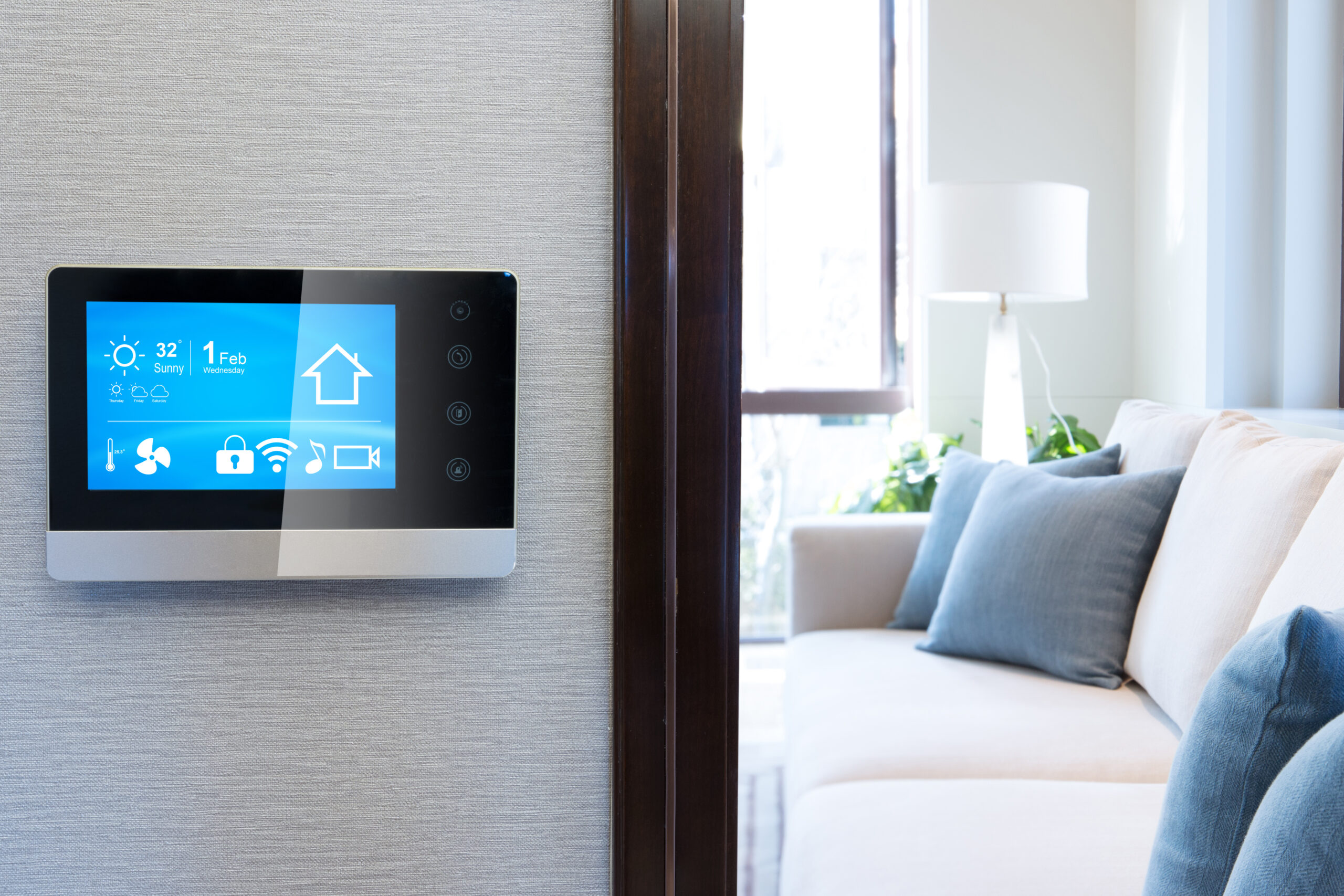
Spring has begun, and it won’t be long before the summer heat has your air conditioning working overtime to keep you cool. You may be dreading those summer energy bills, but what if there was a way to lower your energy bills and keep you comfortable all year long? A smart thermostat can do that and more. Keep reading to learn five benefits of smart thermostats.
Smart thermostats adjust automatically.
Perhaps the greatest functionality of smart thermostats is their ability to adjust temperature and settings based on your routine and other factors. You’ll need to adjust the settings manually for the first week or so, but it will quickly learn what temperature you prefer your home to be at certain times of the day. Some models have motion sensors and can detect when you leave the house and when you return. These models can even adjust temperatures in certain rooms by detecting which rooms you spend time in and when.
Smart thermostats will also account for outside temperature and the size of your home. But you can always program a heating and cooling schedule yourself and adjust the temperature at any time if you prefer. The result is a home that’s always optimized for comfort and energy use at any point in the day.
Control your settings remotely.
With a smart thermostat, you never have to worry about your settings while you’re away from home. Most smart thermostats can be controlled by an accompanying app on your smartphone, meaning you can check and change the temperature from anywhere. This can come in handy if your schedule unexpectedly changes or you forgot to adjust the settings before leaving on a trip. Perhaps you’ve come home from a trip to find that your house sitter turned the A/C or heat up dramatically, leaving you with an abnormally high energy bill. With a smart thermostat, you can always keep an eye on your settings and change them whenever you need to.
Receive important notifications.
Smart thermostats keep you informed by sending alerts and reminders directly to your smartphone or email inbox. Receive alerts when it’s time to change your air filters or batteries, so you’re never caught off guard by a maintenance issue. Many smart thermostats will also notify you of power outages and extreme temperatures inside your home. You can even track your home’s energy use and patterns, helping you find more ways to increase efficiency and comfort.
Improve air quality.
Maintenance reminders like air filter alerts help keep your HVAC system in perfect working condition, ensuring your air stays clean by reducing the risk of harmful pollutants. In addition to tracking temperature and energy use, smart thermostats can monitor indoor humidity and make necessary adjustments. Some models, like the VisionPRO® 8000 from Honeywell®, can even control a humidifier or dehumidifier to keep the air quality and moisture at just the right levels.
Lower your energy bills.
We’ve seen how the benefits of smart thermostats will increase energy efficiency, optimize comfort levels, and give you complete control over the temperature in your home. All these factors work together to help you save money on your energy bills, no matter the season. Smart thermostats won’t waste energy on heating or cooling your home while you’re away, they can automatically adjust based on which rooms are occupied, and you can always adjust the settings remotely if your schedule changes. Smart thermostats afford you more comfort and more savings.
Take control of your home with a smart thermostat from WestAIR.
The benefits of smart thermostats go far beyond what we’ve discussed here. If you’re ready to take your home’s energy efficiency and comfort to the next level, contact WestAIR. We offer a wide range of Honeywell® advanced T-Series and VisionPro® units to put you in control of your home’s temperature and energy costs. Contact us today to learn more.
This entry was posted in Air Conditioning,Energy Savings,Heating,Thermostats and tagged Energy savings, Smart Thermostats, WestAIR Heating & Cooling
Eight Ways to Lower Your Heating Bill This Winter
Posted on by WestAIR Heating & Cooling
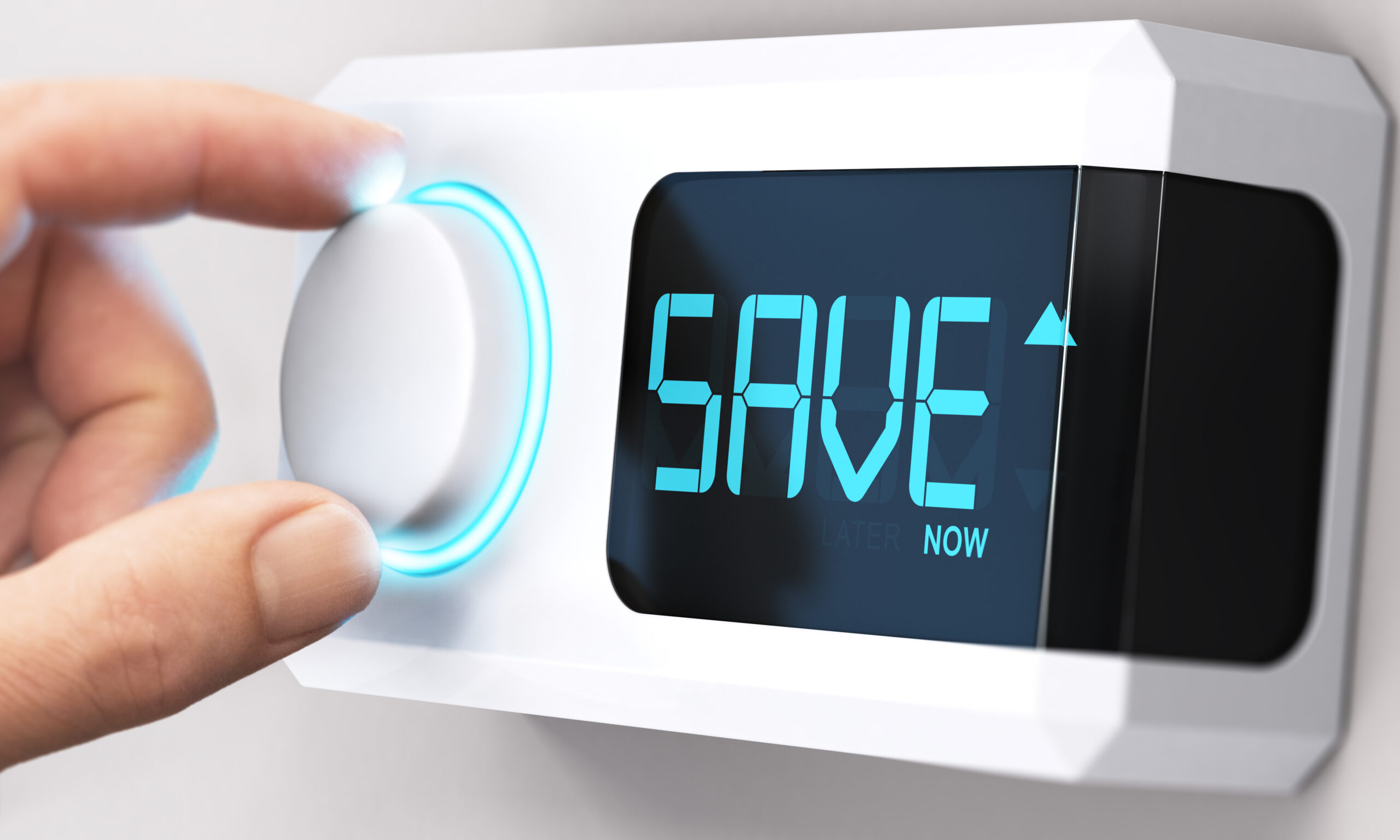
Winters are cold in the upper Midwest, and with energy prices on the rise, winter utility bills can be costly. Like many others, you may be wondering how to lower your heating bill. Fortunately, there are many energy-saving strategies to employ during the colder months. Let’s take a look at eight ways to save money on heating this winter!
1. Turn Down the Thermostat.
It seems obvious, but keeping your thermostat at a lower setting is the best way to reduce your heating bill. You don’t need to let yourself freeze, but even turning down the heat a couple degrees can bring significant savings in the long run. Most people are also more comfortable with cooler temperatures while they sleep, so turning it down every night is an easy way to save energy and money. And don’t forget to turn it down while you’re away at work, so you’re not spending money to heat an empty home! A smart thermostat makes it easy to program a regular heating schedule.
2. Wear Warm Clothes.
Another simple solution to the winter cold is to bundle up. If you’re used to wearing shorts and a T-shirt in your home all year long, you might want to consider putting on a few more layers. Warm bedding and extra blankets will also keep you warm at night. These are less expensive alternatives to cranking the thermostat on cold days.
3. Open (And Close) Your Blinds.
Take advantage of every natural heat source, including sunlight! Opening your curtains and shades on a sunny day heats your home even when it’s freezing outside. Just make sure to close them again when the sun goes down, as windows can also let in cool air.
4. Turn On Your Ceiling Fans.
Wait, don’t fans keep you cool? Fans are usually set to rotate counterclockwise, which brings cold air up from the floor to cool off a room. But if you switch the rotation to clockwise, it will push down all the warm air from the ceiling to distribute it more evenly throughout your home.
5. Seal off Air Leaks.
Windows and doors are major culprits when it comes to allowing warm air out and cool air in. Inspect them carefully for gaps or peeling weather stripping. It’s relatively easy to repair these leaks with some simple caulking, but you can also hire a professional for added assurance. While you’re at it, make sure your attic is well-insulated. Gaps can decrease your home’s energy efficiency.
6. Take Care of Your Heating System.
If your HVAC system isn’t functioning at optimal efficiency, it will have to work harder to heat your home, raising your energy bills. Check your furnace filters regularly—many types of filters should be cleaned or replaced every 30-60 days. You should also have your complete system checked annually by a qualified service technician to avoid costly repairs down the road.
7. Use a Humidifier.
Winter brings cold, dry air, which can cause eye irritation, chapped lips, dry skin, and other unpleasant issues. A humidifier combats these health concerns while also making your home feel warmer since humid air carries more heat than dry air. Not using a humidifier can also dry out the wood in your home, shrinking the wood framing around doors and windows and creating gaps for air to flow through.
8. Install Radiant Floor Heating.
An in-floor heating system can save you up to 40 percent on your heating bill by distributing heat more evenly throughout your home. Unlike forced-air heat, radiant heating reaches every nook and cranny and warms anything on the floor, including furniture. You can even zone off different areas to add increased comfort in rooms like bathrooms, kitchens, and basements.
Contact WestAIR to Maximize Your Home’s Energy Efficiency.
Our professional technicians are experts in servicing and installing furnaces and HVAC systems. We’ll make sure everything is functioning properly so you can have peace of mind. If you’re thinking about installing a new furnace or heating system, we’ll present your options and help you make the best decision for your home and budget. Remember to follow these eight tips to lower your heating bill and contact us today to start saving!
This entry was posted in Energy Savings,Heating,Tips and tagged Energy savings, Heating, Tips & advice, WestAIR Heating & Cooling
Benefits of UV Light Air Purification
Posted on by WestAIR Heating & Cooling
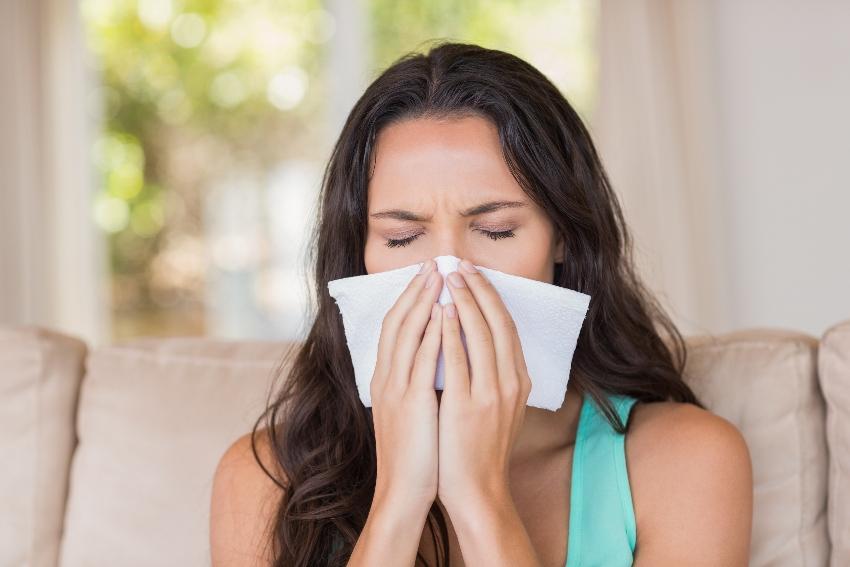
Did you know that ultraviolet (UV) light technology has been used for disinfectant purposes for over a century? While not a novel concept, the technology has grown in popularity among homeowners seeking to improve indoor air quality (IAQ). Read on to learn more about the benefits of UV light air purification.
Reduced Allergen Presence & Improved Overall Air Quality
Working in conjunction with your current HVAC system, UV lights help eliminate odors and harmful airborne pathogens. This effectively reduces the presence of allergens and improves overall IAQ.
Removes Volatile Organic Compounds
Volatile Organic compounds (VOCs) pose a health and safety hazard if breathed in, especially with prolonged exposure. While naturally occurring, they’re also found in many cleaning and disinfectant solutions, aerosol sprays, and other common household products. UV lights target and eliminate VOCs to improve IAQ and help protect your family.
Kills Mold, Bacteria, and Viruses
UV lights produce UV rays that break through an organism’s cell wall and sufficiently damage or destroy its DNA. As a result, the organism is unable to reproduce and cause illness or irritate asthma or allergy sufferers. In addition to VOCs, these rays attack other contaminants like viruses, mold, and bacteria—including odor-causing bacteria.
Better Airflow Throughout System
The air filter works to trap contaminants before they can enter the HVAC system. However, over time, dust and other debris naturally collect in the ductwork and throughout the system, forcing it to work harder. UV lights clear these buildups, improving IAQ as well as the airflow of your system.
Increased HVAC Efficiency
As mentioned, UV lights work to remove debris buildup in ductwork, as well as your HVAC system’s pipes and cooling coils. They also help reduce moisture within the system, which can help prevent condensate drain line clogs. In the end, these factors improve airflow as well as overall efficiency, resulting in decreased energy costs.
Trust WestAIR Heating & Cooling to Help Clear the Air in Your Home
Considering how much time we spend inside our homes, indoor air quality plays a vital role in our health and safety. And with cooling season right around the corner, it’s the perfect time to enjoy the benefits of UV light air purification with your HVAC system.
Contact the local HVAC experts at WestAIR to learn more and schedule service.
This entry was posted in Energy Savings,Health Tips,Indoor Air Quality,Tips and tagged Benefits of UV Light Air Purification, Clean air, Clean Indoor Air, Energy savings, How to Improve Indoor Air Quality, HVAC Efficiency, HVAC Solutions, IAQ, IAQ Solutions, Indoor air quality, Indoor air quality solutions, WestAIR Heating & Cooling
Stay Warm, Reduce Energy Costs This Winter
Posted on by WestAIR Heating & Cooling
In a previous blog, we introduced energy-saving ideas to help keep your home cozy even on those blustery days. Since the weather outside is sure to gradually become frightful, we thought now would be a good time to offer new suggestions and reintroduce valuable tips to stay warm and reduce energy costs this winter.
Adjust Your Thermostat
When you’re asleep or away from home, turn down the thermostat to save energy. According to the U.S. Department of Energy, setting your thermostat seven to 10 degrees lower for eight hours can save as much as 10 percent on your heating bill.
Additionally, you can keep the thermostat slightly lower even when you’re awake by adding another layer of clothing. Grab a hoodie or a thick pair of socks and stay comfortable without having to crank up the heat.
Execute General Maintenance
Scheduling an annual tune up for your furnace will keep things running smoothly and efficiently. A system that’s well cared for will run better and last longer, saving you time, headaches, and money.
Between tune-up appointments, be sure to check and change the air filter. A clogged filter causes the furnace to run less efficiently and work harder to push air through, leading to undue wear and tear. This simple task also helps prevent operational issues and extends the life of your furnace.
Protect Your Water Heater
The water heater accounts for about 17 percent of energy usage. Insulating unit will help it run more efficiently, reduce heat loss, and keep costs down.
Check the Flooring
If you have tile or hardwood flooring, an easy way to save energy during the winter is to throw down a rug. That extra layer of insulation traps cold air underneath, keeping your home (and your feet) warmer while keeping energy use low.
Also, check to make sure the heat vents are clear and clean. Furniture, drapery, and debris can block the flow of heat coming from the vents. Unobstructed vents help keep warm air flowing and your furnace running at regular intervals.
Use the Sun’s Power
Give your furnace a break and take advantage of the sun’s warmth to help heat your home during the day. Open the blinds or curtains to let in some sun – and the heat. Your home will be toasty without your furnace doing any extra work. Just be sure to close the drapes as nightfall sets, to help keep that warm air from escaping.
Swap Out Light Bulbs
LED bulbs use about 75 percent less energy than standard incandescent bulbs. Swap out your old bulbs for LEDs this winter and watch the energy savings add up.
Block Out Cold Drafts
Installing storm windows over the existing windows can help seal off drafts, keeping the cold air out of your warm home. Otherwise, try shutting out cold drafts with a window insulation kit. Adding a thin layer of plastic film can help the house feel warmer and save up to 15 percent on energy bills.
Trust the Team at WestAir
The full-service team at WestAir Heating & Cooling is here to help you stay warm and reduce energy costs this winter. We provide high quality heating (and cooling) systems and solutions all year round as well as preventative maintenance to keep those systems running effectively and efficiently. Contact our knowledgeable experts today with your winter heating questions or to schedule service.
This entry was posted in Energy Savings,Heating,Winter and tagged Cut Costs, Energy savings, Save Energy, Winter, Winter Heating Tips
7 Tips for Extending the Lifespan of HVAC Equipment
Posted on by WestAIR Heating & Cooling

When it comes to weather, Minnesota is a place of extremes. Our harsh, bitterly cold winters and hot, humid summer days make a functioning furnace and air conditioner crucial to a comfy home. Follow these tips for extending the lifespan of HVAC equipment to get the most out of your system.
Schedule Preventative Maintenance Twice Annually
Have your system professionally serviced before each heating and cooling season for a thorough tune-up, cleaning, and maintenance service to ensure peak performance and efficiency. Your technician will also catch minor issues to prevent costly repairs later on, as well as help you decide if it’s better to repair or replace.
But don’t wait for maintenance service or a total breakdown to have your system inspected. If you notice strange sounds or smells, decreased efficiency or performance, or any other warning signs, call your local HVAC professionals to diagnose and repair the issue before it gets worse.
Have Ductwork Professionally Cleaned Every Other Year
Dirt, dust, pollen, and other debris naturally settle inside your ductwork over time. This buildup not only impacts airflow and efficiency, but it also becomes a breeding ground for bacteria. As your HVAC unit pumps air to the home, these contaminants get blown out with it and decrease your indoor air quality.
Schedule professional duct cleaning service once every two years to help maintain air quality and reduce stress placed on the system.
Maintain a Clean Air Filter
Clogged filters decrease airflow, forcing the system to work harder and experience a higher level of wear and tear. They’re also the number one cause of breakdowns. Remember to clean or change your HVAC system’s air filter every month.
Take Care of the Condenser Unit
While A/C condenser units are designed to withstand the elements, they’re not invincible. Inspect your condenser for any damage or debris buildup on occasion, especially after severe storms and instances of hail. Additionally, give the unit two to three feet of space to easily and efficiently draw in air. Keep the unit and surrounding space clean and clear of obstructions as well as grass clippings, leaves, branches, dirt, and other debris.
Check the Drainage Pipe Regularly
HVAC systems feature a PVC pipe on the indoor unit that leads outside to drain excess condensation. Serious damage to this outlet line can result in expensive repairs, so inspect yours regularly for blockages, debris, and any other issues. Be sure to do so more frequently in winter due to the potential of ice or snow deposits.
Invest in a Programmable Thermostat
Being strategic with your thermostat can help lower utility bills and stress on your system. However, constantly adjusting the temperature can have the opposite effect. With a programmable thermostat, you can preset temperature and humidity levels over multiple days without worrying about manual adjustments.
Ease Stress on the System in Other Ways
Give your HVAC system a break whenever possible to maximize its performance and useful life. For more information, check out our helpful guides to optimizing HVAC efficiency in the winter and summer.
Heating and cooling systems contribute up to half of a home’s energy consumption, and we rely on them throughout the year in our state. Use this guide to extending the lifespan of HVAC equipment to keep the air in your home clean and comfy for years to come.
Backed by over 30 years of industry experience, locally owned and operated WestAIR has the knowledge and expertise for all your heating, cooling, and indoor air quality needs. Contact us to learn more about our services.
This entry was posted in AC,Air Conditioning,Cooling,Duct Cleaning,Energy Savings,Fall,Furnace,Health Tips,Heating,Humidity,HVAC Maintenance,Indoor Air Quality,Tips,Winter and tagged A/C, A/C maintenance, A/C Tips, Air conditioner maintenance, Air filters, Condenser Unit Maintenance, Duct cleaning, Energy savings, Energy-Saving HVAC Tips, Extending the Lifespan of HVAC Equipment, Furnace Maintenance, Furnace Tips, Homeowner Education, HVAC Education, HVAC Maintenance, HVAC Maintenance Tips, HVAC tips, Preventative Maintenance, Programmable thermostat
Energy-Saving HVAC Tips for Summer Cooling
Posted on by WestAIR Heating & Cooling

So far, June has given Minnesotans multiple occasions to fire up the A/C. With the dog days of summer yet to come, plenty more hot and humid days await. But don’t sweat it – WestAIR is here to help! We put together these energy-saving HVAC tips to help minimize your utility bills this cooling season.
Prevent Issues Later with Professional Service Now
Having an HVAC technician inspect, service, and clean your system now helps ensure peak performance and prevent costly repairs down the road. If you haven’t already, contact your local HVAC professional about the following services.
- Annual preventative maintenance: Give your system a tune-up before the season to ensure optimal performance and efficiency. During service, the technician can also catch small issues before they become expensive repairs and help you decide if it’s time for an upgrade.
- Duct cleaning: Ductwork should be cleaned annually as dirt, pollen, hair, dust, and other particles collect inside and reduce indoor air quality over time. They can also clog up the system if left long enough, decreasing its efficiency and increasing energy bills.
Optimize A/C Performance with Tips Around the Home
You don’t have to shut down your HVAC system and suffer through the heat to cut costs. Instead, follow these simple tips and get the most out of your A/C this summer.
- Keep vents clean and clear. Blocking vents with rugs, furniture, and other items decreases efficiency. Make sure cool air can circulate freely, and vacuum vents regularly to clean away dust, dirt, and other debris.
- Maintain a clean air filter. Filters prevent debris from getting into your HVAC unit and naturally become dirty or clogged, which adds stress onto the system. To avoid issues, change (or clean, if re-usable) your filter monthly.
- Seal the home. Don’t let cool air escape or heat enter whenever possible. Caulk any cracks or seams around the home; lock windows shut to ensure a tight seal; draw blinds and curtains to prevent any natural heating from sunlight.
- Be smart about electronics. Unplug chargers, small appliances, and other electronics when they’re not in use. Also, avoid placing heat-generating devices like lamps and TVs near thermostats – the heat can make it seem like the room is hotter than it really is and trick the thermostat into working harder to cool the home.
- Grill outside or plan cold meals. Cooking in the oven or on the stove produces heat and can raise the temperature in your kitchen by up to 10 degrees. Take advantage of the summer weather and fire up the grill, or plan some cold meals like salads and sandwiches.
- Use ceiling fans. Set ceiling fans to spin counterclockwise so they blow air straight down. This will keep cool air low and create a wind chill effect, allowing you to turn the thermostat up a few degrees.
- Consider installing a programmable thermostat. While proper thermostat management can help keep bills low, constantly changing the thermostat can impact your HVAC system’s efficiency and health. Programmable thermostats let you pre-set custom temperature and humidity levels for multiple days instead of monitoring it manually.
Lower Utility Bills with Strategic Water Use
According to the U.S. Department of Energy (DOE), 18 percent of your home’s energy consumption comes from water heating. Try these water use strategies to help cut utility costs throughout the summer months.
- Wash clothes with cold or warm water. According to the U.S. Environmental Protection Agency (EPA), water heating accounts for 90 percent of the energy used by your washing machine. Avoid washing with hot water whenever possible. Also, line-dry laundry outside to save more energy and reduce indoor humidity.
- Take cold(er) showers. Hot showers require more energy, and the steam they produce increases humidity. Take colder, shorter showers to lower costs and help maintain indoor air quality.
- Water the lawn and garden at dawn or dusk. Water usage tends to increase in the summer, especially outdoors due to lawn, garden, and landscape watering. Do these tasks in the early morning or at dusk to prevent the water from quickly evaporating in the summer heat. This will help cut costs and keep your yard and garden healthy.
With July and August still ahead, we know the cooling season is far from over here in Minnesota. Use these energy-saving HVAC tips to minimize utility costs while keeping your home cool and cozy this summer. And for all of your heating and cooling needs, rely on the residential HVAC experts at WestAIR for thorough, high-quality service.
Contact us today to schedule service and learn more.
This entry was posted in AC,Air Conditioning,Cooling,Duct Cleaning,Energy Savings,Tips and tagged air conditioning, Air filters, Cooling Mistakes, Cooling Tips, Duct cleaning, Energy efficiency, Energy efficient, Energy savings, Energy-Saving HVAC Tips, Energy-saving tips, Family Health, Home Cooling, Homeowner Education, Homeowner Tips, HVAC Education, HVAC Maintenance, HVAC Mistakes, HVAC Safety, HVAC tips, Indoor air quality, Preventative Maintenance, Summer Cooling, Summer HVAC Tips
Surprising Ways to Reduce Humidity in Your Home
Posted on by WestAIR Heating & Cooling
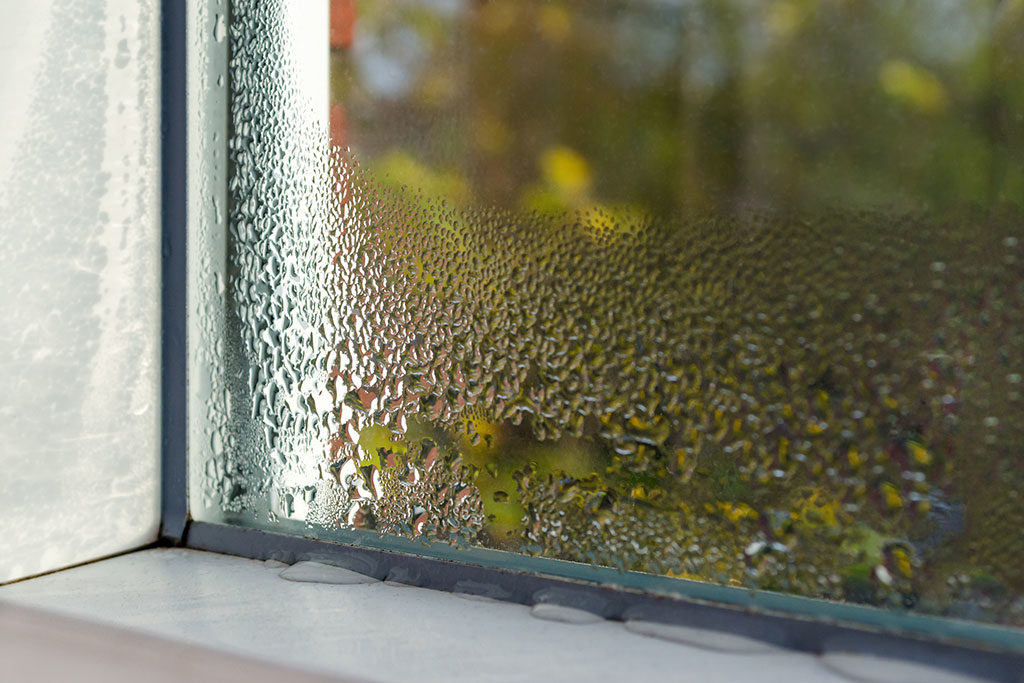
If you’ve been noticing foggy windows, musty odors, or clammy air throughout your home, chances are, your humidity levels are high. Humidity can both rob you of comfort and threaten your health. We don’t want you to suffer through the stifling heat, so we’ve outlined some surprising ways to reduce humidity in your home.
But first, a word about relative humidity (RH): RH measures water vapor relative to the temperature of the air. RH illustrates the amount of water in the air in relation to the total amount of humidity that could be held at the current temperature. Weather forecasts report relative humidity because it affects how we feel the temperature. Humid air feels warmer; dry air feels cooler. The ideal indoor relative humidity for a home is between 40 and 60 percent. If your RH is lower or higher, follow these tips:
Go old school with laundry
Dry your clothing outside. If you hang wet clothing inside to dry, all the moisture will evaporate into the air.
Accessorize with plants
Invest in some household tropical plants like Boston ferns, English ivies, Peace lilies, Reed Palms, or Tillandsias. These plants absorb moisture from the air instead of through the roots.
Take cold(er) showers
Hot showers create steam. Plan to bathe after exercising or spending time outside in the heat. You’ll be less tempted to jump into a steaming shower, and the cool water will feel refreshing. If nothing else, run the exhaust fan during and after showering.
Eat more salads
Hot weather provides the perfect opportunity to cook outside on the grill or eat cold meals like salads and sandwiches. Avoid boiling water; instead, save the heavy pasta for cooler weather. Your body will thank you in more ways than one.
Check the drainage route
In high humidity, your air conditioner or dehumidifier will produce a lot of condensation that has to go somewhere. Regularly empty the drip pan and be sure the drain lines are working properly so the water doesn’t evaporate back into the air.
Replace your flooring
Carpet is known to retain moisture. If you’ve tried all the above methods to decrease humidity, but still have a problem with moisture, consider replacing the carpet with hardwood flooring.
Benefits of proper humidity
With lower humidity levels, you could raise the thermostat setting a few degrees and still be comfortable. High humidity may cause headaches and asthma symptoms such as wheezing, shortness of breath, or a chronic cough. Proper humidity levels are easier on your respiratory tract and can:
- Reduce your cooling costs.
- Minimize wear on your HVAC system.
- Prevent dust mites, mold, bacteria, and mildew.
- Eliminate foul odors.
- Help you sleep better.
If you are still having trouble, consult with the professionals at WestAIR Heating & Cooling. We offer high-efficiency air conditioners to keep you cool in the muggy season and countless air quality accessories to reduce humidity. Schedule service to have a technician visit your home and recommend the right solutions for your family’s total indoor air comfort.
Contact us for more information.
This entry was posted in Air Conditioning,Cooling,Health Tips,Indoor Air Quality,Tips and tagged Air quality accessories, Asthma, Comfortable, Cooling, Dehumidifier, Energy efficiency, Energy savings, Grilling out, Humidity, HVAC, HVAC tips, Indoor air, Indoor air quality, Indoor air quality solutions, Muggy season
Indoor Air Quality Solutions
Posted on by WestAIR Heating & Cooling
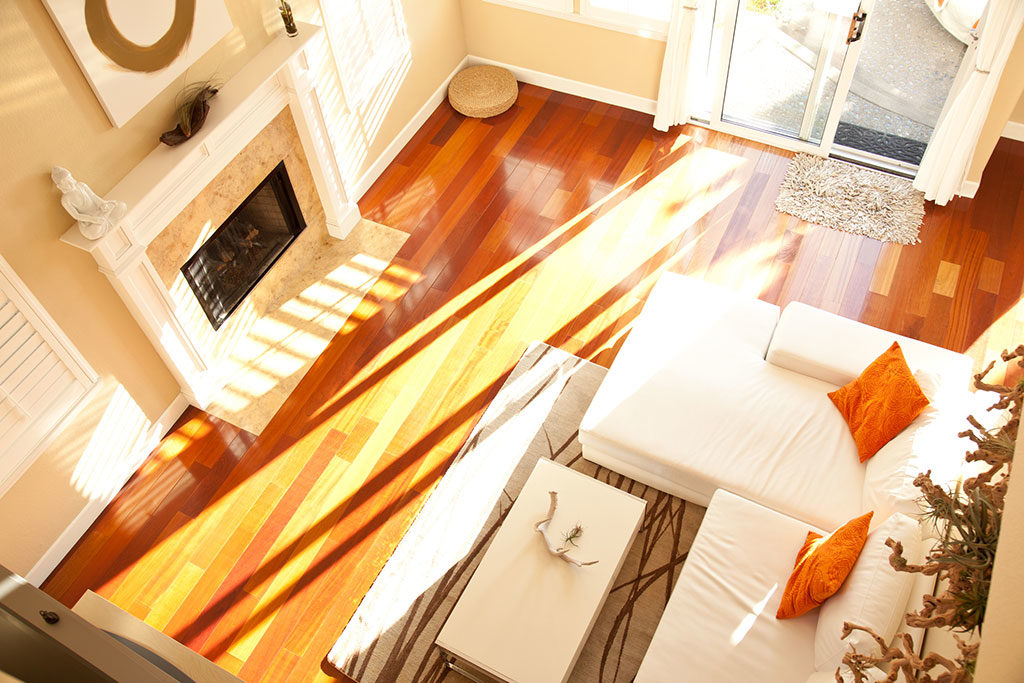
Ever looked at a ray of light streaming through your windows and noticed floating dust particles? The sunlight can reveal a lot about a room’s air quality. While it may be tempting to open up the windows and doors for a quick fix, we’re in the thick of ragweed season, so it probably won’t do you any favors. The EPA recommends upgrading your HVAC filter or using an air cleaner to reduce harmful airborne particles. Read our blog to learn why and discover some more indoor air quality solutions.
New filters
Your HVAC filter traps microorganisms, animal fur, hair, lint, dander, mold, pollen, dirt, and more so they don’t accumulate in your system or irritate your lungs. Check your filter once a month to see if it needs replacing. A clogged air filter can cause your HVAC equipment to overheat, short cycle, or even break down. At the very least, changing a dirty filter could lower your energy bills because your system won’t have to work twice as hard just to obtain adequate airflow.
Air cleaner
An air cleaner uses a filter to trap particles like bacteria, mold, ragweed, pet dander, and dust mites. It can even eliminate viruses, kill germs, neutralize fumes, and remove odors. Those with allergies, asthma, or sensitivity to chemicals can benefit from an air cleaner, which can remove up to 97 percent of pollen-sized particles.
Air exchanger
Every time you cook, shower, clean, and breathe, you release pollutants into the air. Airtight buildings are more energy efficient, but they need to somehow circulate air to maintain a healthy environment. Without adequate ventilation, old air will sit in enclosed spaces and accumulate dust, bacteria, mold, and other harmful particles.
An air exchanger provides refreshed, filtered air to reduce these allergens. Air exchangers use two fans, one to take stale air out, and the other to pull in fresh air, run it through a filter, and disperse it through the ductwork.
Dehumidifier
Humidity makes a room seem hotter than it is and increases the likelihood of mold and mildew growth. Drier air feels cooler. A dehumidifier can increase your comfort and allow you to raise the temperature a few degrees to save on cooling expenses. You can use a portable unit or install a whole house dehumidifier that works in conjunction with your HVAC system.
Dehumidifiers pull moist air over a cooling coil that condenses the moisture vapor into droplets. Moisture along the coils drips into a collection pan or directly down a drain.
Duct cleaning
In most HVAC systems, all the conditioned air passes through ductwork to supply vents in each room, and back through return registers to be conditioned again. Particles floating in the air could become trapped in the many channels and crevices behind your walls. If the ductwork is dirty, your indoor air will be, too, no matter what air cleaning accessories you install. During air duct cleaning, your technician will use powerful vacuums and brushes to dislodge debris and allow proper airflow.
Bonus tip
Plants clean the air of carbon dioxide and can remove cancer-causing formaldehyde, benzene, and other toxins. If you are looking for an inexpensive way to purify your indoor air, bring in some potted vegetation. They can improve your physical health as well as your mental well-being by reducing stress, building memory retention, and increasing concentration, which in turn boosts productivity.
At WestAIR, we care about you and your family’s health and comfort. We offer air quality solutions to rid your home or business of harmful pollutants and provide fresh oxygen, day in, and day out.
Contact us to learn more.
This entry was posted in Duct Cleaning,Indoor Air Quality,Tips and tagged Air circulation, Air cleaner, Air filters, Allergies, Asthma, Clean HVAC ducts, Comfortable, Cooling, Energy efficiency, Energy savings, Humidity, HVAC, HVAC tips, Indoor air quality, Indoor air quality solutions
HVAC Tips for Summer Trips
Posted on by WestAIR Heating & Cooling
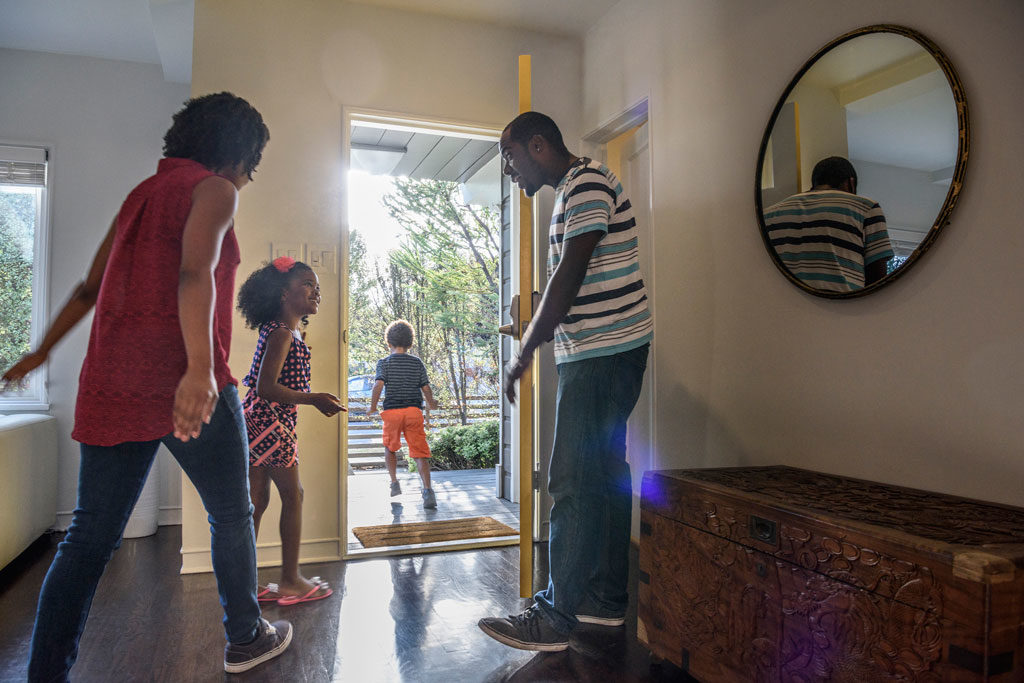
What exciting summer trips do you have planned? Before you pack up those bags and lock the door, take time to make sure your air conditioning will fare well while you are gone. Proper preparation will save you money on utility bills and keep your home’s air quality safe. So before you leave town, check out these HVAC tips for summer trips:
Don’t turn your HVAC system off
Many homeowners think they need to turn their cooling off to save money while they’re away in the summer. But you may end up spending more than you saved trying to cool your home back down when you return. An HVAC system doesn’t just regulate temperature, it also circulates air, controls humidity, and keeps indoor pollutants at bay. If you turn it off in the summer, humidity levels may rise, and you could come home to mold issues.
Program your thermostat
Before you leave, set the thermostat four degrees higher than your normal comfortable temperature, but keep it below 85 degrees. Check out the smart thermostats we offer with easy, seven-day programming and humidity control so you can rest assured your home is in good hands.
Prepare for rain
Install a full-house surge protector to save your system from power outages in case of a large summer storm or downed power lines. A surge protector will absorb the electrical overload and channel it into the ground so the power doesn’t damage your HVAC units.
Seal your home
Close all doors, windows, blinds, curtains, and storm shutters. Your home will stay cooler if you block the sun out, and conditioned air will remain inside if your home is sealed from the elements. Make sure supply and return registers are open so air circulates freely throughout the home.
Unplug
Unplugging electronics before you leave for vacation will help your system cool more efficiently. Some appliances still generate heat even if they aren’t being used. If you plan to be away for a significant amount of time, empty and unplug the refrigerator and turn down the water heater.
Give your equipment some attention
Even if you’ve just recently serviced your equipment, it’s important to check it before you leave it unattended. Replace the air filter if it’s dirty and clear the outdoor units of anything that would obstruct airflow. Pull away weeds, trim shrubbery, remove branches or twigs resting on the unit, and unclog the condensate drain if it is blocked.
Call WestAIR
Finally, schedule service so you don’t have to worry when you are states away enjoying vacation with your family. Our technicians will recharge the refrigerant if it’s low, clean the evaporator coils, and address any issues your air conditioning unit may have.
WestAIR Heating & Cooling provides cooling solutions to fit your home and budget. We offer energy-efficient A/C units, smart thermostats, filters, air cleaners, and more. Contact us today.
This entry was posted in Air Conditioning,Cooling,Tips and tagged A/C, A/C tune-up, Air circulation, air conditioning, Air filters, Comfortable, Cooling, Cooling system, Energy efficiency, Energy savings, HVAC, HVAC tips, Indoor air quality, Window curtains
Top Tips for Summer Cooling
Posted on by WestAIR Heating & Cooling
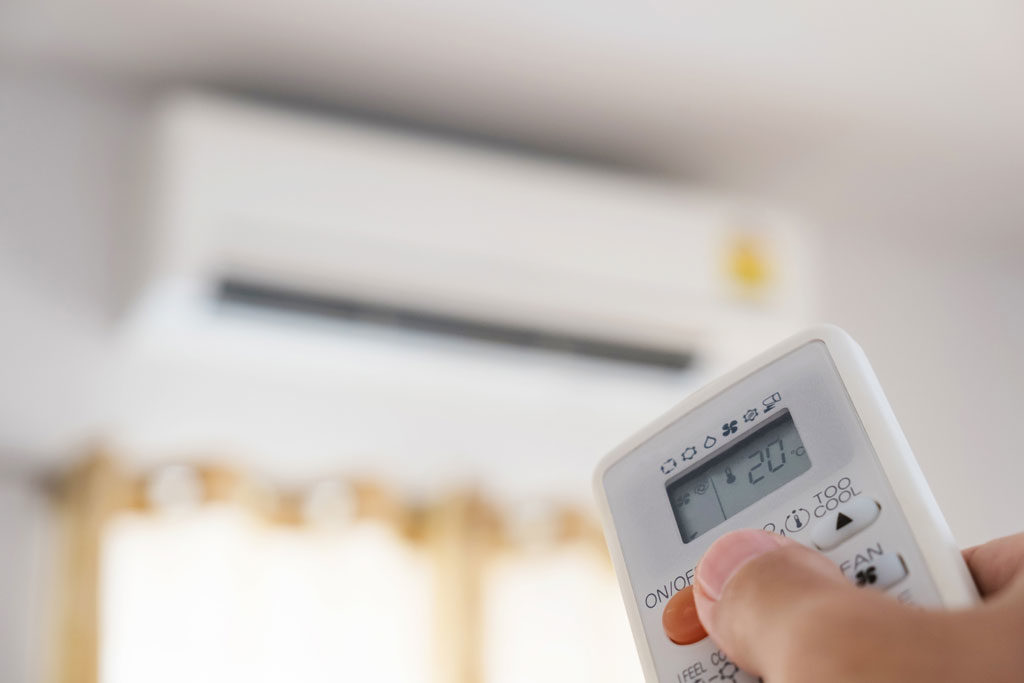
Warm weather is great for barbecues, days at the beach, and evening campfires, but not so great on your home’s cooling system. Some homeowners fight the urge to turn on their air conditioning, and others let it run, dreading their summer utility bills. Thankfully, there are options that will save you from the heat, give you peace of mind, and treat your pockets kindly. Here are some top tips for summer cooling:
Protect your home and equipment
Weatherizing your home isn’t just for winter. An air-tight system will save you money on cooling. Caulk your windows and doors so the cool air your system produces won’t escape. Up to 30 percent of home heat in the summer comes in through the windows. Use blinds, curtains, and drapes to block out the sun and keep daytime heat out.
Schedule maintenance with a qualified technician before the heat of summer. If you regularly service your HVAC equipment, it’ll last longer and run more efficiently. Proper DIY maintenance like keeping your outdoor unit clear of debris and regularly dusting your home will ensure dirt and dust don’t infiltrate your system and ruin your equipment. Check your filter once a month and replace as needed. If your air filter collects dust and debris, airflow will be restricted, and your unit will have to work harder.
Distribute air
Close off any unused rooms so you are only cooling the areas you use frequently, but make sure the rest of your home is well ventilated. Check that your supply and return registers aren’t blocked by furniture. Flip the switch on the motor housing of your ceiling fans to summer mode (counterclockwise). The blades will push the air straight down and create a wind-chill effect. Turn off your cooling system and open your windows in the evening to save money and provide your home with fresh air. Consider other indoor air quality solutions like an air exchanger or cleaner.
Avoid heat-producing appliances
Appliances that use heat can waste the cold air your cooling system produces. Instead of cooking in your oven, enjoy the outdoors by grilling more often. Air-dry your dishes and laundry instead of using the dishwasher and dryer. Take cool showers so your water heater won’t have to run as often. In addition, keep heat-producing appliances away from your thermostat so it reads the temperature accurately and doesn’t overcompensate.
If you’re still using incandescent light bulbs, replace them with LED lights. Incandescent bulbs create light by using electricity to heat up a filament until it glows. Ninety percent of the energy used to light up the filament is wasted on heat. LEDs create light through a cold process, producing little amounts of heat in comparison.
Take advantage of technology
According to the EPA, when used properly, a programmable thermostat can save you up to $180 a year in energy costs. With a programmable thermostat, you can set the temperature of your home higher when you leave for work or a trip and lower it shortly before you return.
Replace your old unit with a more efficient system. It may be more expensive up front, but a new air conditioner with a high SEER rating can give you maximum energy savings and reduce your carbon footprint. You’ll also enjoy peace of mind knowing your unit won’t likely break down on the hottest days of summer.
WestAIR Heating & Cooling provides energy-efficient Rheem A/C units, smart thermostats, filters, and other cooling solutions. We offer annual service maintenance and a variety of specials so you can save money and keep your HVAC system running smoothly. Contact us to learn more.
This entry was posted in AC,Air Conditioning,Cooling,Energy Savings and tagged A/C, A/C tune-up, Air circulation, Air cleaner, air conditioning, Air filters, Comfortable, Cooling, Cooling system, Energy efficiency, Energy savings, Grilling out, Hot days, HVAC, Indoor air quality, Indoor air quality solutions, Window curtains
Subscribe to Our Blog
With RSS feeds, you don't have to visit our site everyday to keep up to date. Simply subscribe to our blog via RSS or Email and our posts will come to you!
Search Blog Posts
Categories
Archives
- April 2024 (1)
- February 2024 (1)
- January 2024 (1)
- February 2023 (1)
- January 2023 (1)
- December 2022 (1)
- November 2022 (1)
- October 2022 (1)
- September 2022 (1)
- August 2022 (1)
- July 2022 (1)
- June 2022 (1)
- May 2022 (1)
- April 2022 (1)
- March 2022 (1)
- February 2022 (2)
- December 2021 (1)
- November 2021 (1)
- October 2021 (1)
- September 2021 (1)
- August 2021 (1)
- July 2021 (1)
- June 2021 (1)
- May 2021 (1)
- April 2021 (1)
- March 2021 (2)
- January 2021 (1)
- December 2020 (1)
- November 2020 (1)
- October 2020 (1)
- September 2020 (1)
- August 2020 (1)
- July 2020 (1)
- June 2020 (1)
- May 2020 (1)
- April 2020 (1)
- March 2020 (1)
- February 2020 (2)
- November 2019 (1)
- August 2019 (2)
- June 2019 (1)
- May 2019 (1)
- April 2019 (1)
- March 2019 (1)
- February 2019 (1)
- January 2019 (1)
- December 2018 (1)
- November 2018 (1)
- October 2018 (1)
- September 2018 (1)
- August 2018 (2)
- July 2018 (1)
- May 2018 (1)
- April 2018 (1)
- March 2018 (1)
- February 2018 (1)
- January 2018 (1)
- December 2017 (3)
- November 2017 (2)
- October 2017 (2)
- September 2017 (2)
- August 2017 (1)
- July 2017 (2)
- June 2017 (3)
- May 2017 (2)
- January 2017 (4)
- November 2016 (1)
- September 2016 (3)
- July 2016 (2)
- June 2016 (2)
- May 2016 (4)
- April 2016 (1)
- March 2016 (2)
- February 2016 (2)
- January 2016 (1)
- August 2015 (1)
- July 2015 (1)
- June 2015 (3)
- May 2015 (1)
- July 2014 (2)
- June 2014 (1)
- April 2014 (1)
- March 2014 (1)
- February 2014 (2)
- October 2013 (1)
- May 2013 (1)
- March 2013 (1)
- February 2013 (1)
- August 2012 (1)
- July 2012 (2)
- June 2012 (2)
- May 2012 (2)
- March 2012 (1)
- February 2012 (1)
- December 2011 (1)
- November 2011 (1)
- October 2011 (1)
- September 2011 (1)
- August 2011 (1)
- June 2011 (1)
- May 2011 (1)
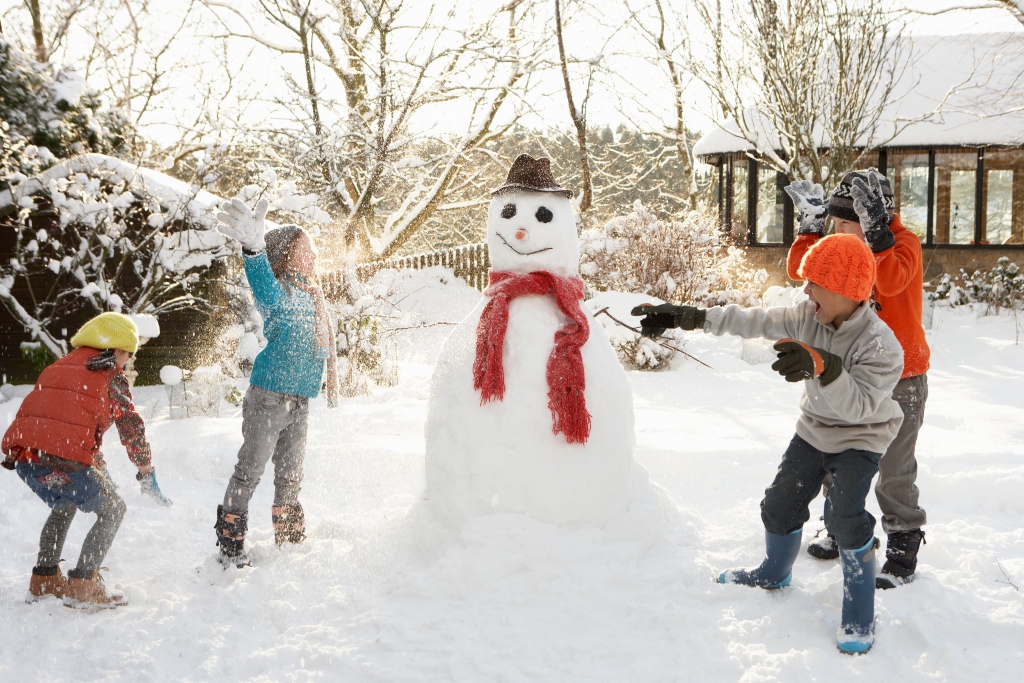
 Subscribe
Subscribe Subscribe
Subscribe